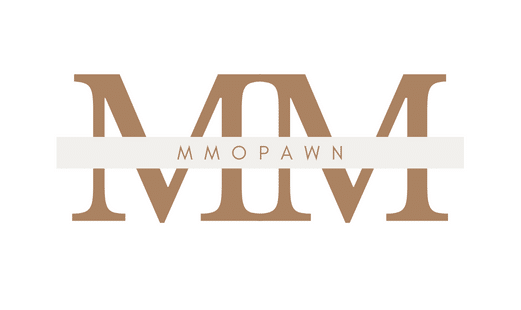In the dynamic world of construction, managing tasks and resources can be a daunting task. As the complexity of construction projects increases, the role of project scheduling becomes even more critical. Scheduling is not just about listing tasks and assigning resources. It involves a complex web of dependencies, timelines, cost estimates, and resource allocation. Thankfully, technology has made great strides in this area, with advanced software tools offering features to streamline project scheduling, aid in efficient time management, and enhance overall project management. In this article, we’ll explore the latest technologies that are revolutionizing the way project scheduling is done in the construction industry.
Utilizing Software for Construction Project Scheduling
An effective construction project management plan should prioritize the use of advanced scheduling software. These tools offer a great deal of assistance in managing and tracking the progress of construction tasks. Scheduling software can help construction teams visualize the project timeline, allocate resources, and prioritize tasks. Advanced features in these tools also allow for real-time collaboration, instant updates, and integration with other software tools.
Dans le meme genre : How to Create Effective Partnerships between Real Estate Agents and Mortgage Brokers?
Software tools for construction project scheduling are equipped with features to handle complex construction projects efficiently. They allow for the creation of detailed work plans, setting dependencies between tasks, and tracking the progress of each task. These tools also facilitate resource allocation and pricing, ensuring optimal use of resources and budget control. Moreover, the software can generate reports and analytics, providing insights into project performance and potential areas of improvement.
Optimizing Time Management in Construction Projects
In the construction industry, time is money. Delayed projects not only lead to increased costs but can also hurt the reputation of your company. Optimizing time management in construction projects is therefore key to successful project completion.
Sujet a lire : What Are the Key Considerations for Creating Age-Friendly Housing Developments?
Integrating technology for time management is a practical approach to staying on schedule. Innovative software tools provide features for real-time tracking of task progress, enabling teams to keep an eye on the project’s timeline. Real-time tracking can help identify potential delays early on, allowing for timely intervention and course correction.
Another popular technology in time management is predictive analytics. By analyzing past project data, predictive analytics can forecast possible delays and suggest preventive measures. This can greatly reduce the likelihood of missed deadlines and unexpected project costs.
Enhancing Team Collaboration with Technology
Effective team collaboration is a crucial aspect of successful project management in construction. Advanced technology tools can significantly enhance team collaboration, facilitating better communication, task distribution, and problem resolution.
Project management software often comes with collaborative features that allow team members to communicate and coordinate in real-time. This can be particularly beneficial for large teams or projects with remote team members. By providing a central platform for communication and coordination, the software can reduce misunderstandings and ensure all team members are on the same page.
Moreover, some software tools offer features for task distribution and delegation. These features enable the project manager to assign tasks to team members and track their progress. This not only ensures accountability but also enables better workload management.
Leveraging Resource Management Tools
Resource management is another critical aspect of construction project scheduling. Optimally utilizing resources can significantly enhance project efficiency and reduce costs. Modern technology tools offer advanced features for resource management, helping construction teams to plan and utilize resources effectively.
Resource management tools allow for the detailed listing and scheduling of resources, including manpower, equipment, and materials. These tools can track resource usage, monitor availability, and forecast future needs. They also allow for effective resource allocation, ensuring that resources are used optimally and not wasted.
In addition, resource management tools can assist in pricing and cost estimation. By providing an accurate estimate of resource needs, these tools can help in budget planning and control. This not only ensures project profitability but also reduces the likelihood of unexpected costs.
Emphasizing the Critical Path Method in Construction Scheduling
The Critical Path Method (CPM) is a widely used technique in construction project scheduling. It identifies the most critical tasks in a project, i.e., those that can potentially delay the entire project if not completed on time. Technology tools that incorporate CPM can greatly enhance the efficiency of project scheduling.
Software tools that use the CPM allow for the identification and prioritization of critical tasks. They help in setting task dependencies, allowing for effective planning and scheduling of tasks. With the help of these tools, project managers can ensure that critical tasks are completed on time, thereby minimizing the risk of project delays.
Moreover, CPM tools can provide visual representations of the project schedule, making it easier to understand and follow. This can be particularly helpful for large and complex construction projects, where managing and tracking multiple tasks can be challenging. By highlighting the critical tasks, these tools can help to focus the team’s efforts on the tasks that matter the most.
The Role of Gantt Charts in Construction Scheduling
Gantt charts have become an integral part of project scheduling in the construction industry. These charts are effective visual tools that map out the timeline and sequence of tasks, making complex construction schedules easier to understand and manage.
A Gantt chart provides a graphical representation of a project schedule. It displays project tasks on the y-axis and time intervals on the x-axis. The length of each horizontal bar in the chart corresponds to the estimated time of a task, and its position indicates the planned start and end dates.
Gantt charts are beneficial in many ways. First, they offer a clear, visual representation of the project’s timeline, making it easier for project managers and team members to understand the project timeline and task dependencies. Second, Gantt charts also help in identifying the critical path of a project. The critical path is the sequence of tasks that have the longest duration and directly impact the project’s finish date.
Advanced scheduling software incorporates Gantt charts, enabling real-time updating of tasks and timelines. As tasks progress, the Gantt chart can be updated to reflect task completion, delays, or changes in dependencies. The real-time nature of these software tools ensures that everyone in the team has the most accurate and current project schedule at their fingertips.
Furthermore, using Gantt charts in project management software can enhance team collaboration. By visualizing task dependencies, team members can better understand their role in the project and coordinate their efforts more effectively.
Conclusion
The realm of construction scheduling has come a long way over the years, and the latest technologies have made it more efficient and accurate. Software tools have revolutionized project management, offering advanced features to streamline scheduling, enhance time management, and improve team collaboration.
Gantt charts, as a part of these software tools, offer a visual and intuitive way to manage complex construction schedules. They enable project managers to identify the critical path, prioritize tasks, and keep track of project progress in real-time. Resource management tools are also playing a crucial role in optimizing resource allocation and cost control.
The rising complexity of construction projects calls for the adoption of these advanced technologies. By leveraging cutting-edge software tools for construction scheduling, construction teams can ensure that their projects are completed on time, within budget, and to the highest quality standards.
On a final note, as we move forward in this digital age, the construction industry must continue to explore and adopt new technologies that enhance project scheduling. This is not just about keeping up with the latest trends, but about ensuring continual improvement in efficiency, effectiveness, and overall project success. The future of construction project scheduling is undoubtedly intertwined with the evolution of technology.






